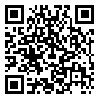Volume 16, Issue 5 (Vol 16, Special Issue 2021)
irje 2021, 16(5): 1-9 |
Back to browse issues page
Download citation:
BibTeX | RIS | EndNote | Medlars | ProCite | Reference Manager | RefWorks
Send citation to:



BibTeX | RIS | EndNote | Medlars | ProCite | Reference Manager | RefWorks
Send citation to:
Salimi Y, Paykani T, Ahmadi S, Shirazikhah M, Almasi A, Biglarian A, et al . Covid-19 Vaccine Acceptance and Its Related Factors in the General Population of Tehran and Kermanshah. irje 2021; 16 (5) :1-9
URL: http://irje.tums.ac.ir/article-1-6911-en.html
URL: http://irje.tums.ac.ir/article-1-6911-en.html
Y Salimi1 
 , T Paykani2
, T Paykani2 
 , S Ahmadi3
, S Ahmadi3 
 , M Shirazikhah4
, M Shirazikhah4 
 , A Almasi1
, A Almasi1 
 , A Biglarian4
, A Biglarian4 
 , N Rajabi Gilan5
, N Rajabi Gilan5 
 , Z Jorjoran Shushtari *
, Z Jorjoran Shushtari * 
 6
6

 , T Paykani2
, T Paykani2 
 , S Ahmadi3
, S Ahmadi3 
 , M Shirazikhah4
, M Shirazikhah4 
 , A Almasi1
, A Almasi1 
 , A Biglarian4
, A Biglarian4 
 , N Rajabi Gilan5
, N Rajabi Gilan5 
 , Z Jorjoran Shushtari *
, Z Jorjoran Shushtari * 
 6
6
1- PhD, Social Development & Health Promotion Research Center, Health Institute, Kermanshah University of Medical Sciences, Kermanshah, Iran
2- PhD, Social Development and Health Promotion Research Center, Gonabad University of Medical Sciences, Gonabad, Iran
3- PhD, Department of Social Welfare Management, University of Social Welfare and Rehabilitation Sciences, Tehran, Iran
4- PhD, Social Determinants of Health Research Center, University of Social Welfare and Rehabilitation Sciences, Tehran, Iran
5- MSc, Social Development & Health Promotion Research Center, Health Institute, Kermanshah University of Medical Sciences, Kermanshah, Iran
6- PhD, Social Determinants of Health Research Center, University of Social Welfare and Rehabilitation Sciences, Tehran, Iran ,jorjoran.z@gmail.com
2- PhD, Social Development and Health Promotion Research Center, Gonabad University of Medical Sciences, Gonabad, Iran
3- PhD, Department of Social Welfare Management, University of Social Welfare and Rehabilitation Sciences, Tehran, Iran
4- PhD, Social Determinants of Health Research Center, University of Social Welfare and Rehabilitation Sciences, Tehran, Iran
5- MSc, Social Development & Health Promotion Research Center, Health Institute, Kermanshah University of Medical Sciences, Kermanshah, Iran
6- PhD, Social Determinants of Health Research Center, University of Social Welfare and Rehabilitation Sciences, Tehran, Iran ,
Abstract: (3364 Views)
Background and Objectives: Vaccine acceptance could seriously affect global efforts to control the Covid-19 pandemic. The aim of this study was to estimate the Covid-19 vaccine acceptance and its related factors in Tehran and Kermanshah.
Methods: A population-based cross-sectional study was conducted on 850 participants in Tehran and Kermanshah using the random digit dialing method. Multiple logistic regression was used to estimate the adjusted odds ratio of factors related to vaccine acceptance.
Results: The frequency of the Covid-19 vaccine acceptance was 66.47% (95% confidence interval: 69.57%, 63.21%). Moreover, 86.02% of the participants stated that they would use any type of (Iranian / foreign) vaccine approved by the Iranian Ministry of Health. However, 13.98% of the participants stated that they only preferred foreign approved vaccines (if available). The variables of age, fatalism, and socioeconomic status had significant associations with the Covid-19 vaccine acceptance.
Conclusion: Based on the results of this study, the Covid-19 vaccine acceptance was moderate. In order to achieve herd immunity by vaccination faster in our society, the strategy of prioritizing vaccination can be planned based on the related variables such as religious beliefs and fatalism, younger age groups, and people with higher socio-economic status that are willing to receive the vaccine.
Methods: A population-based cross-sectional study was conducted on 850 participants in Tehran and Kermanshah using the random digit dialing method. Multiple logistic regression was used to estimate the adjusted odds ratio of factors related to vaccine acceptance.
Results: The frequency of the Covid-19 vaccine acceptance was 66.47% (95% confidence interval: 69.57%, 63.21%). Moreover, 86.02% of the participants stated that they would use any type of (Iranian / foreign) vaccine approved by the Iranian Ministry of Health. However, 13.98% of the participants stated that they only preferred foreign approved vaccines (if available). The variables of age, fatalism, and socioeconomic status had significant associations with the Covid-19 vaccine acceptance.
Conclusion: Based on the results of this study, the Covid-19 vaccine acceptance was moderate. In order to achieve herd immunity by vaccination faster in our society, the strategy of prioritizing vaccination can be planned based on the related variables such as religious beliefs and fatalism, younger age groups, and people with higher socio-economic status that are willing to receive the vaccine.
Type of Study: Research |
Subject:
Epidemiology
Received: 2021/08/8 | Accepted: 2021/03/5 | Published: 2021/03/5
Received: 2021/08/8 | Accepted: 2021/03/5 | Published: 2021/03/5
Send email to the article author
| Rights and permissions | |
 |
This work is licensed under a Creative Commons Attribution-NonCommercial 4.0 International License. |



